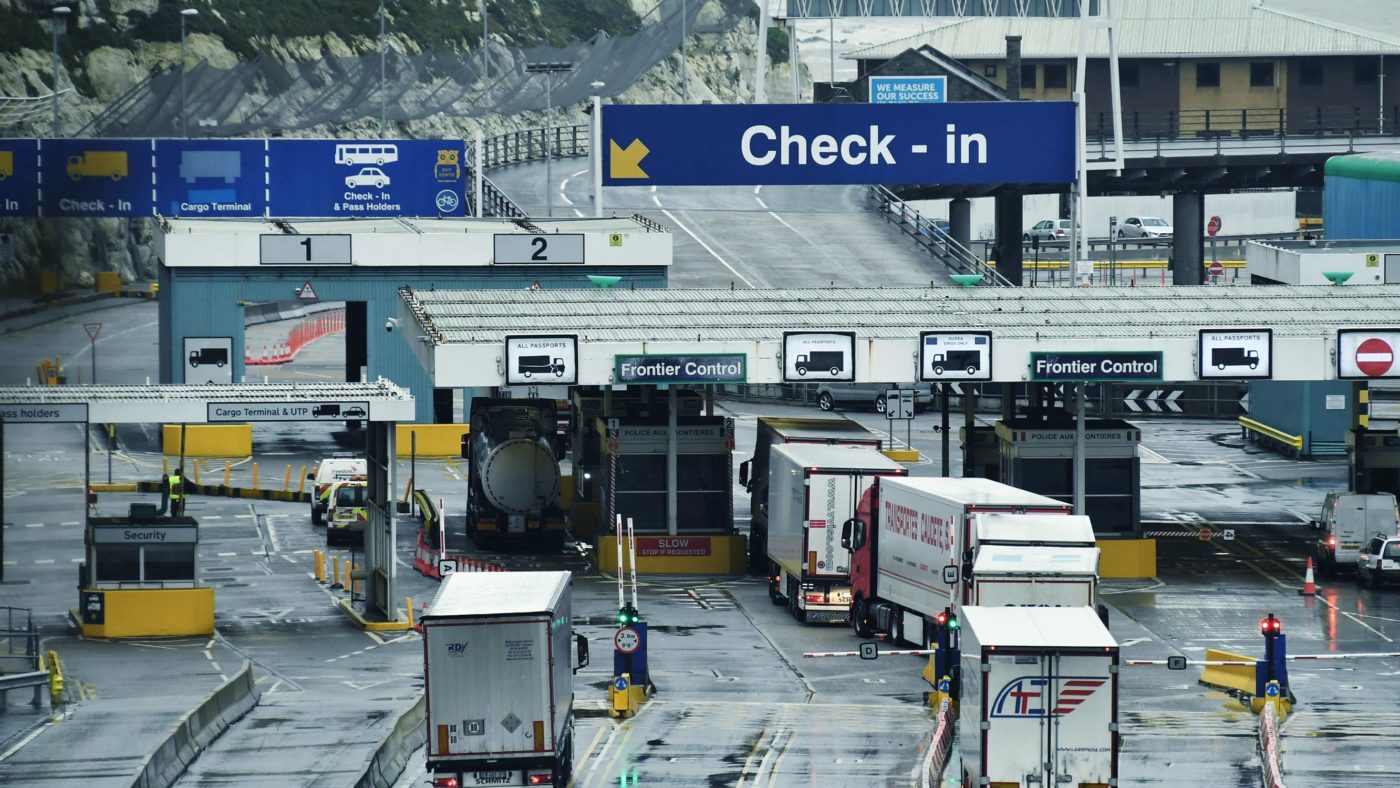Brexit pessimists are having a field day following official confirmation that UK exports to the EU slumped in January – and they have a point. Anything that increases the cost of doing business across borders was always likely to reduce trade. Nonetheless, the first month’s trade figures after the end of the transition period are next to useless as a guide to the longer-term economic impacts of Brexit.
Let’s deal first with the January data. The value of UK exports to the EU fell by 40.7% compared to December and by 38.6% compared to January 2020. These figures need to be taken with a bucketful of salt, given the distortions due to Covid, precautionary stockpiling ahead of Brexit, and changes in the way the data are now collected. However, there can be little doubt that the initial disruption caused by the new trade arrangements was a major factor.
This is clearly bad news. That said, the news is not as bad as many had warned. The Observer claimed in February that “the volume of exports going through British ports to the EU fell by a staggering 68% last month compared with January last year, mostly as a result of problems caused by Brexit”. That has turned out to be far too pessimistic.
More importantly, we already have plenty of evidence that trade volumes rebounded in February as businesses began to adapt to the new arrangements. As well as the latest government data, independent sources – such as the freight logistics company Transporeon and the shipping tracker exactEarth – confirm that flows have gradually been returning to normal.
Business surveys also provide some reassurance – once you look past the headlines. For example, a survey by Make UK (formerly the Engineering Employers’ Federation) found that almost three-quarters of companies have experienced delays in moving goods in and out of the EU in the last three months. But the survey also identified a number of ways that these problems could be reduced with more government help (which is coming), including “assistance with export documentation, better trained customs staff and clearer guidance on import/export paperwork”.
This is consistent with the message from the regular business surveys run by the ONS, which helpfully break down the challenges faced by exporters and importers. ‘Additional paperwork’ is also top of the list, followed by ‘change in transportation costs’ (reflecting problems in the global shipping industry as least as much as Brexit).
Clearly, the jury is still out, and it may be years, let alone months, before the full impact of Brexit on UK-EU trade becomes clear. But three arguments can be rebutted straight away.
The first is that, because the slump in exports in January is in the same ballpark as some of the more pessimistic estimates of the long-term impact of Brexit, it ‘proves’ that these estimates are right. Alternatively, it has been suggested that since the slump in January is consistent with these long-term estimates, we can expect it to be permanent.
This is nonsense. It ignores all the caveats around the data in January, as well as the evidence of a recovery in February. Even Brexit pessimists – including Thomas Sampson at the LSE – have warned against reading too much into this one month’s data, let alone attributing everything to Brexit.
The second argument (more often made by Brexiteers) is that we shouldn’t worry too much about additional trade frictions with the EU because of the potential for import substitution. However, the gains from trade come at least as much from imports as they do from exports. Trade is voluntary and benefits both sides, or else it would not happen at all.
Many UK consumers and businesses have made a free choice to buy imported goods and services rather than those available at home. An increase in trade barriers that forces them to substitute imports from the EU with domestically-produced alternatives is not therefore a ‘benefit’ of Brexit.
The third argument (often made by Remainers) is that the UK is now paying a heavy price for its ‘uncooperative attitude’ to the EU. A recent piece by Ian Mulheirn even managed to blame Lord Frost, or at least Brexit in general, for the tax increases in the March Budget! (Among other things, this assumes that the OBR’s guesswork on the economic impacts of Brexit is gospel truth, and that this, rather than the impact of the pandemic, was what made up the Chancellor’s mind.)
If anything, the UK is now reaping the benefits of decoupling from the EU on the most important issue, not just for the health of the nation but also the health of the economy and public finances. This, of course, is the management of Covid.
We can argue about whether the UK could have gone its own way on vaccine procurement and approval even as a full member of the EU, but it is surely no coincidence that ‘Brexit Britain’ was the only country to do so.
The faster rollout of the vaccines also demonstrates how a single nation state can act more quickly than a bloc of 27 of 28 countries (which bodes well for future trade deals), and illustrates the benefits of independent regulatory policies too.
In the meantime, the EU is at least as much to blame for the difficulties in implementing the trade aspects of Brexit. To be fair, it was the UK’s decision to leave the Single Market and Customs Union. But it is EU officials and governments who are playing hardball on border controls, who were the first to threaten to invoke Article 16 of the Northern Ireland Protocol, who have been dragging their feet on equivalence in financial services, and so on. If Lord Frost is feeling “belligerent”, I for one wouldn’t blame him.
Click here to subscribe to our daily briefing – the best pieces from CapX and across the web.
CapX depends on the generosity of its readers. If you value what we do, please consider making a donation.


